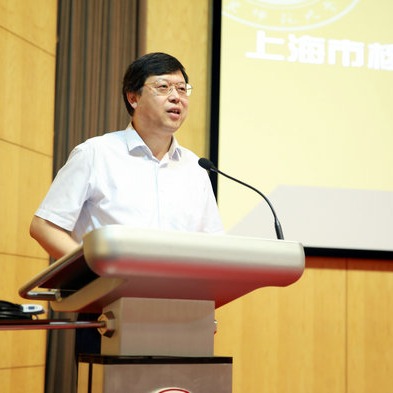



Competition training is supplemental to in-class math education for primary and secondary school students in China, but further research and practice is still necessary to identify the role of competitions in popularizing the study among the public and selecting top talent, a math scholar says.
"Math contests could develop valuable skills students acquire beyond the formal academic settings," says Xiong Bin, director of the International Mathematical Olympiad Research Center at East China Normal University.
Xiong, also director of Shanghai Key Lab of Core Mathematics and Practice, will give a speech on Mathematical Olympiad education at the congress on Sunday. He has, so far, served as the leader of Chinese teams participating in the International Mathematical Olympiad (IMO) 10 times, seven of which, his team won the first group prize.
According to Xiong, math competitions at all levels, especially at the IMO in recent years, often include geometry problems, which help foster students' logical reasoning ability.
"Math contests also hone communication skills, exemplified when students present their mathematical ideas or problem-solving process to others, or evaluate solutions put forward by teachers and other students," Xiong says.
"Moreover, imaginative and critical thinking abilities are also enhanced when math problems students encounter in contests cannot be solved by textbook formulas or theorems."
Open-ended problems are an example. According to Xiong, math problems in the classroom normally have one correct answer. However, in high-level math competitions, open-ended problems that address higher order thinking goals are often posed and, usually, contestants' solutions are beyond the expectations of their teachers.
For instance, prizes have been awarded to more than 40 contestants of the IMO so far for providing better answers than the sample solutions.
"In the long run, training for math competitions cultivates potential mathematicians and scientists. Middle school teachers and students are also able to conduct research-based learning and academic exchanges through competitions," he says.
Mathematics competitions were introduced to China in 1956 when math contests were first held in middle schools in Beijing, Tianjin, Shanghai and Hubei province's Wuhan. Late Chinese mathematical research pioneer Hua Luogeng served as the chairman of the Beijing Municipal Competition Committee and presided over the designing of questions for contests. In 1985, for the first time, two domestic contestants representing China participated in the 26th IMO held in Finland.
Since then, decades of development in math competitions education in China has contributed to the establishment of a comprehensive training system for math competitions, covering diverse activities such as interest groups, regional and interprovincial math competitions and summer camps for students. Teacher training is also part of the system, through courses and teaching practices.
"The excessive popularization of math contests, however, has been controversial, as interest in math competitions is encouraged among more children at an early age. Hua's concern when the math competitions were introduced to the country over whether extracurricular math contests would impact the basic mathematics education or holistic education for students remains true today," Xiong says.
"In fact, many students have excelled in previous IMOs at an early age, and math competitions are designed for such gifted children. However, experts found some children may lose their problem-solving ability or even interest in the subject when they are in the upper grades," Xiong says.
"Opening math contests to all primary and middle school students is an option for popularizing math, but from the perspective of talent selection, contests are suitable for just a few students with an appetite to learn math at a high level and with a strong mathematical ability. It would be against the law of education to force all students to be devoted into training for high-level math competition," he adds.
Xiong also points out that stress may arise from unprecedented academic pressure, when in-class education is increasingly intertwined with math contest skills and knowledge, which requires "cooperation among teachers and experts in creating proper math problems for competition".
If you have any problems with this article, please contact us at app@chinadaily.com.cn and we'll immediately get back to you.